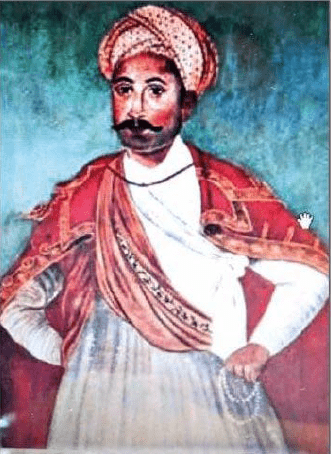He was the first Zoroastrian to sail to England from India; not to mention the first Indian who sued the British and won! He sailed back in victory with his cause vindicated and putting his entrepreneur skills upfront, he was received with great respect.
Article by Ashleshaa Khurana
Naoroji Rustomji Manek Seth (1662-1732) was the son of the philanthropic Parsi Rustomji Manekji of Surat, after whom Tapi town’s Rustompura area has been named.
 Upon the death of Rustomji, who was one of the chief brokers of the British in India, a dispute arose in 1721 between Rustom’s sons and the officers of the English factory at Surat. ‘History of The Parsis’ by Dosabhai Framji Karaka states that “Great pressure was brought upon Rustom’s heirs to forgo their claim by Messrs. Cowan and Courtney, ,vho induced Momin Khan the then Nawab of Surat, thro ugh the influence of Governor William Phipps of Bombay; to imprison Framji Rustomji – the eldest son and to put the family home under attachment.”
Upon the death of Rustomji, who was one of the chief brokers of the British in India, a dispute arose in 1721 between Rustom’s sons and the officers of the English factory at Surat. ‘History of The Parsis’ by Dosabhai Framji Karaka states that “Great pressure was brought upon Rustom’s heirs to forgo their claim by Messrs. Cowan and Courtney, ,vho induced Momin Khan the then Nawab of Surat, thro ugh the influence of Governor William Phipps of Bombay; to imprison Framji Rustomji – the eldest son and to put the family home under attachment.”
Framji was also fined Rs 50,000 and made to pay Rs 200 daily for the food supply of his family members and ser vants. When his younger brother Bamanji went to seek redress from the Bombay governor he too was placed under surveillance and not allowed to cross the limits of Bombay.
Seeking justice for his elder brothers, the youngest son of Rustomji Naoroji Rustomji sailed to Europe on ‘Salisbury’- a war ship. He reached London in April 1723. The Court of Directors in London received him and justice prevailed. Not only did he manage to secure orders for the release of his brothers, but also settled the disputed accounts in his favour on his claim before The East India Company directors concerning money owed to his family by Company officials in Bombay.
All the claims of dispute between Rustom’s heirs and the English factory were referred by mutual consent. The Parsi brothers were awarded a settlement of Rs 5,46,790 to be paid in three instalments. The first one of Rs 1,70,000 was paid on February 1, 1724 and the second and third each of Rs 1,88,395 on February 1 in the next consecutive years of 1725 and 1726 respectively.
The Court of Directors also presented Naoroji with a dress of honour. According to a report of England’s Committee of Correspondence dated July 1724, of the 19,125 pounds awarded to him as damages, Naoroji being the businessman he was, invested in commodities to sail back with him on the ship ‘Windhain’.
Seeking special permission, he embarked sixteen brass guns, ten pieces of lead sheets, seven hundred weight of copper plates, ten copper pots, four grandfather clocks, seven table clocks, 12 pewter distilling worms, three small still, 60 dozen knives, 100 sword blades, as well as clothing and provisions.
Upon his return to India, Naoroji settled in Bombay. Their ancestral mansion was built on top of Dongri Hill, situated to the west of Bombay Dock. The entire hill was bought by his family and renamed Naoroji Hill from where the best blue basalt available in Bombay was quarried.
Naoroji’s son Manekji Seth born at Surat in 1688, engaged in extensive mercantile dealings and continued the family’s philanthropic practices. He got the fire temple at Bazar Gate Street, at Fort, the Wadi constructed in Bombay and towers of silence built in both, Bombay and in Surat (1747) amongst other charitable works.
